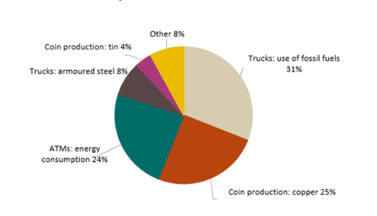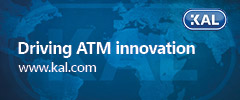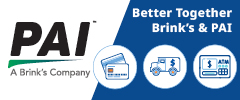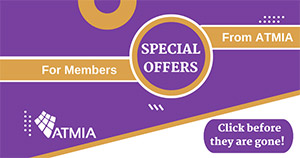
How Cash is Reducing its Environmental Footprint
Thursday, November 05, 2020
In December 2016, 195 countries signed the Paris Agreement within the United Nations Framework Convention on Climate Change which aims to keep the increase in global average temperature to well below 2 °C (3.6 °F) above pre-industrial levels; and to pursue efforts to limit the increase to 1.5 °C (2.7 °F), recognizing that this would substantially reduce the risks and impacts of climate change.
In September 2019, a Climate Summit gathered world leaders, the private sector and civil society to support the multilateral process and to increase and accelerate climate action and ambition. The Summit focused on key sectors where action can make the most difference—heavy industry, nature-based solutions, cities, energy, resilience, and climate finance. In closing the Summit, the Secretary-General said “You have delivered a boost in momentum, cooperation and ambition. But we have a long way to go.”
In October 2018, the Dutch Central Bank performed a Life Cycle Assessment of the Dutch cash cycle and concluded that the Global Warming Potential (GWP) of the cash payment system amounts to 17 million kg of CO2 equivalents, which represents 0.009% of the GWP of the Netherlands. The three main identified contributors in the cash cycle were the production of coins, the transportation and the operation of ATMs.
Contributions of cash payment chain components to environmental impact Source: Hanegraaf R, Jonker N, Mandley S. and Miedema J (2018); Life Cycle Assessment of Cash Payments; DNB Working Paper n°610
Source: Hanegraaf R, Jonker N, Mandley S. and Miedema J (2018); Life Cycle Assessment of Cash Payments; DNB Working Paper n°610
GIVING POLYMER BANKNOTES A NEW LIFE
CCL a manufacturer of polymer which is used a banknote substrate in many countries has opend a new recycling plant in Mexico. The new plant will be recycling polymer banknotes at the end of their useful life, transforming old notes into polypropylene pellets, which will then find their way into a wide range of new plastic products, including garden furniture, and building materials.
In August, CCL Industries became an official partner of the Global Commitment to the New Plastics Economy, led by the Ellen MacArthur Foundation (which aims to accelerate the transition to a circular economy by designing out waste and pollution, keeping products and materials in use, and regenerating natural systems).
OPTIMIZING THE ENVIRONMENTAL FOOTPRINT OF ATMS
Diebold-Nixdorf has published a guide to assist financial institutions to adhere to the Principles for Responsible Banking (PRB), launched under the umbrella of the United Nations Environment Programme Finance Initiative. By July 2020, the PRB have been signed by over 180 banks globally.
The paper, Sustainable Banking: A Guide to Taking Action recommends five action plans to reduce the environmental footprint of bank branches and ATMs.
- Action Plan #1: Optimize your branches’ physical footprint.
- Action Plan #2: Reduce power consumption.
- Action Plan #3: Reduce CIT visits through automation and cash recycling.
- Action Plan #4: Increase remote and automated capabilities.
- Action Plan #5: Implement new technology that enables long-term sustainability.
PROSEGUR IS TESTING HYBRID AND ELECTRIC TRUCKS
Prosegur Cash has launched a comprehensive sustainability plan with the aim of reducing the environmental impact of its activities. The company aims to achieve a 1.5% reduction in the direct CO2 emissions of its armoured fleet by 2020. To do so, the main levers are the hybridisation and electrification of their vehicles.
In August 2020, Prosegur added the first fully electric armoured Cash-in-Transit vehicle to its fleet in Germany. This is not only the first Cash-in-Transit vehicle in Germany, but worldwide. In Spain, the company has unveiled 12 new hybrid armoured trucks, which will operate in Madrid and Barcelona. The new vehicles will reduce CO2 emissions into the atmosphere by nearly 25% and save 23% on fuel consumption and 10% on maintenance costs.



























